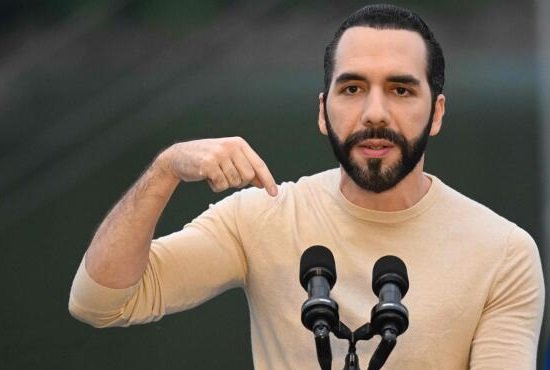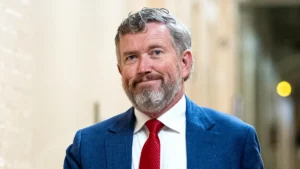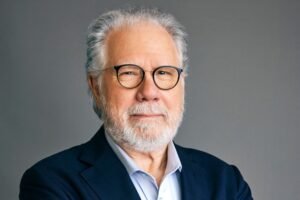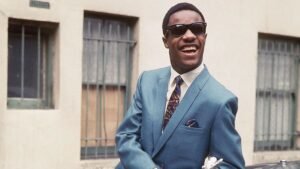Nayib Bukele es innovación y liderazgo que transforman El Salvador

Nayib Bukele es innovación y liderazgo que transforman El Salvador
Nayib Bukele, presidente de El Salvador desde 2019, ha revolucionado la política del país con un enfoque moderno y disruptivo. Conocido por su combate efectivo contra la violencia y su apuesta por la tecnología, como la adopción del Bitcoin, Bukele ha ganado tanto admiradores como críticos. Aunque su gestión ha sido reconocida por reducir los índices de criminalidad, su estilo de gobierno ha generado controversias por posibles tendencias autoritarias y su manejo del poder judicial.
Primeros años y formación
Nayib Bukele nació en San Salvador el 24 de julio de 1981, en el seno de una familia empresarial. Desde joven, mostró interés por los negocios, trabajando desde temprana edad en las empresas familiares, lo que le proporcionó una sólida experiencia en gestión empresarial. Aunque estudió Derecho brevemente en la Universidad Centroamericana José Simeón Cañas (UCA), no completó la carrera, decidiendo enfocarse en el mundo empresarial y, eventualmente, en la política.
Bukele es descendiente de inmigrantes palestinos por parte de su padre, Armando Bukele Kattán, un empresario e intelectual muy influyente en El Salvador. La figura de su padre marcó su visión empresarial y su posterior incursión en la política, ya que compartía con él un enfoque pragmático para abordar los problemas del país.
Inicios en la Política: alcalde de Nuevo Cuscatlán y San Salvador
Su primera incursión política se dio en 2012, cuando fue elegido alcalde del pequeño municipio de Nuevo Cuscatlán bajo la bandera del partido Frente Farabundo Martí para la Liberación Nacional (FMLN). Durante su mandato, logró modernizar la administración local y desarrollar proyectos de infraestructura, ganándose una reputación como un gestor eficiente y cercano a la comunidad.
En 2015, Bukele se lanzó como candidato a la Alcaldía de San Salvador, la capital de El Salvador, y ganó con una campaña innovadora centrada en la modernización urbana y la mejora de los servicios públicos. Durante su gestión, impulsó la revitalización del centro histórico de la ciudad y desarrolló políticas sociales enfocadas en la juventud y la inclusión digital.
Presidencia de El Salvador con una nueva era política
En 2019, Bukele fue electo presidente de El Salvador con el 53% de los votos en una primera vuelta, lo que representó un cambio histórico en la política salvadoreña, pues rompió con el bipartidismo que había dominado el país desde el fin de la guerra civil. Fundó el partido Nuevas Ideas, con el cual logró conectar con una gran parte de la población, especialmente los jóvenes, quienes lo veían como un líder capaz de transformar el país.
Principales logros de su mandato
- Reducción de la Violencia y Seguridad Pública
Uno de los pilares de la administración de Bukele ha sido la lucha contra la violencia y las pandillas que históricamente han afectado al país. A través del “Plan Control Territorial”, Bukele ha implementado una serie de políticas que han llevado a una drástica disminución en los índices de homicidios y criminalidad en general. Este éxito ha sido aclamado tanto a nivel nacional como internacional, aunque ha generado debates sobre los métodos utilizados para lograr estos resultados. - Modernización y Adopción del Bitcoin
Bukele también ha sido pionero en la implementación de medidas tecnológicas y económicas innovadoras. En 2021, El Salvador se convirtió en el primer país del mundo en adoptar el Bitcoin como moneda de curso legal. Esta decisión fue recibida con entusiasmo por parte de la comunidad de criptomonedas global, pero ha sido objeto de críticas por parte de organismos financieros internacionales, que cuestionan su viabilidad y los posibles riesgos para la estabilidad económica del país. - Proyectos de Infraestructura
Otro aspecto clave de su gobierno ha sido la modernización de la infraestructura. Bukele ha impulsado proyectos de desarrollo urbano, la construcción de nuevas autopistas y la modernización del aeropuerto internacional, todo con miras a mejorar la imagen y la competitividad de El Salvador en la región. - Controversias y críticas. A pesar de los logros en seguridad y desarrollo, la presidencia de Bukele no ha estado exenta de controversias. Su estilo de liderazgo ha sido descrito como autoritario por sus opositores, particularmente después de varios incidentes que han generado preocupación sobre el respeto a la separación de poderes y las normas democráticas.
- Intervención en el Poder Judicial
Uno de los episodios más polémicos ocurrió en mayo de 2021, cuando la Asamblea Legislativa, dominada por Nuevas Ideas, destituyó a los magistrados de la Sala de lo Constitucional de la Corte Suprema y al Fiscal General, en lo que fue interpretado como un intento de Bukele por concentrar más poder. Este hecho fue criticado por la comunidad internacional, incluyendo organismos como la Organización de Estados Americanos (OEA) y Naciones Unidas. - Reformas Constitucionales y Reelección
En 2022, Bukele anunció su intención de buscar la reelección presidencial, una medida que fue posible tras la modificación de la interpretación de la constitución salvadoreña. Este movimiento generó un fuerte debate tanto dentro como fuera del país, ya que algunos sectores lo vieron como un retroceso democrático.
Relación con la comunidad internacional
La relación de Bukele con la comunidad internacional ha sido compleja. Mientras algunos países y organizaciones lo han elogiado por sus esfuerzos para reducir la violencia y modernizar El Salvador, otros han expresado su preocupación por su manejo del poder y su retórica antiestablishment. Bukele ha mantenido una postura crítica frente a organismos como el Fondo Monetario Internacional (FMI) y ha apostado por una política exterior más independiente.
Legado y perspectivas futuras
A medida que se acerca el final de su primer mandato, Bukele sigue siendo una figura polarizadora, admirado por muchos por su capacidad para ejecutar cambios rápidos en el país, pero también objeto de críticas por la centralización del poder. La elección de Bukele como presidente marcó un punto de inflexión en la política salvadoreña, y su impacto en el futuro del país, especialmente en términos de desarrollo tecnológico y seguridad, será un tema de análisis en los próximos años.







